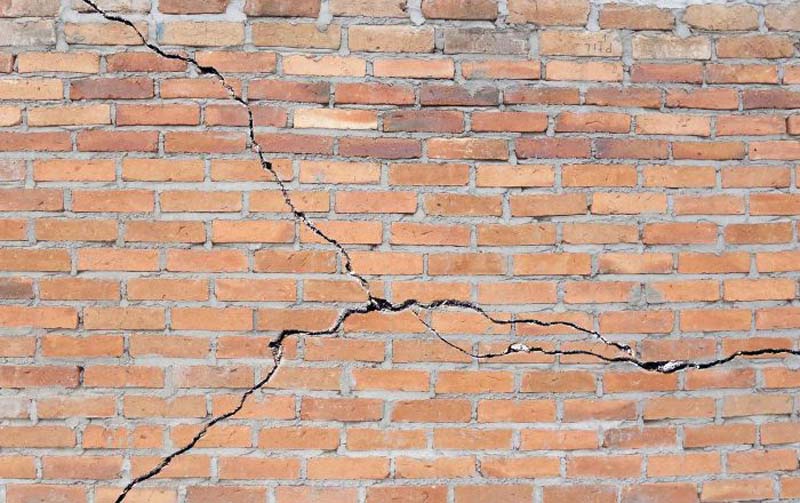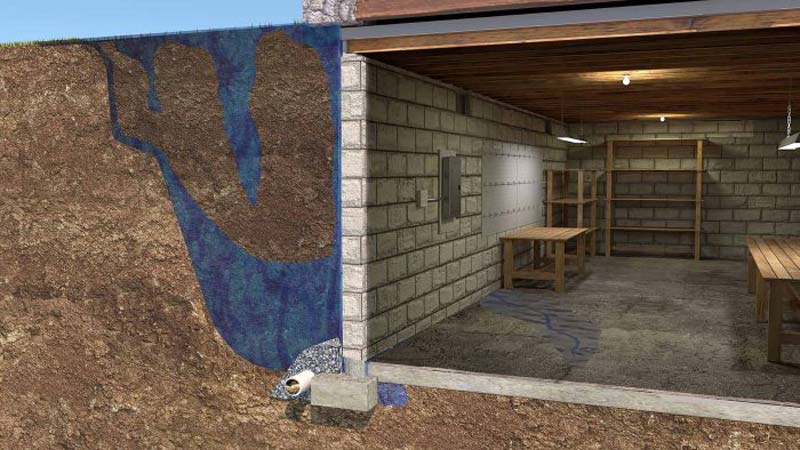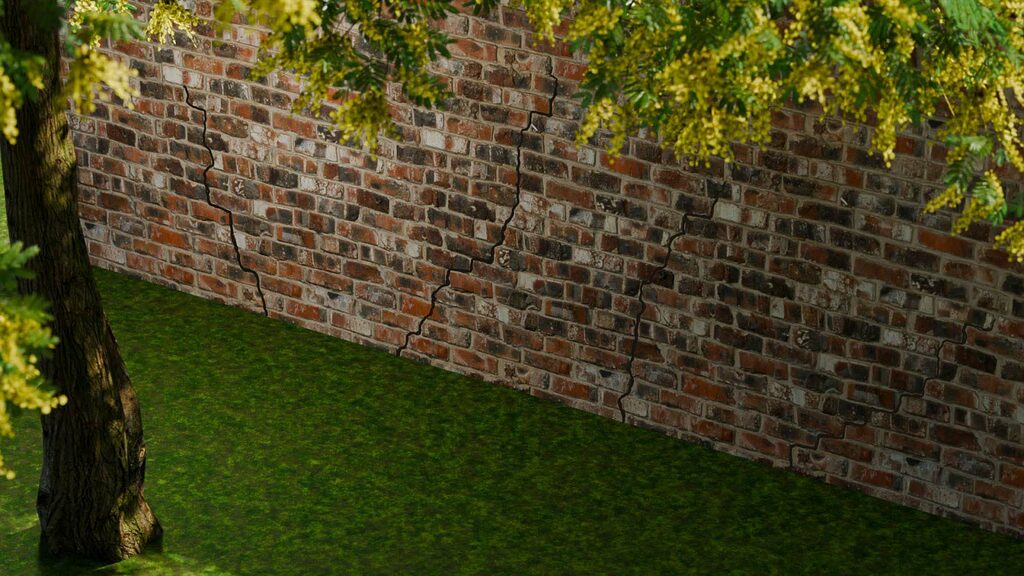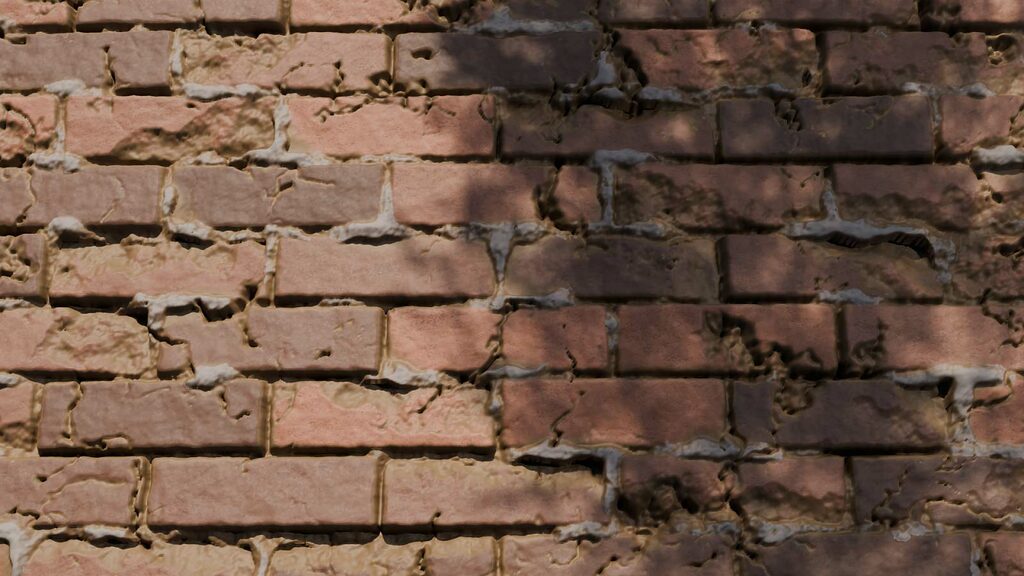If any part of your home consists of brick and mortar, you’ll need to be on the lookout for cracks in your bricks. If you find that the masonry in your house does appear to have cracks in it, you also need to know what to do about it.
We’ll use this article to give you an idea of when cracks in your bricks are something to worry about and address. We’ll also share a few of the top reasons why bricks become cracked. Read on to discover how to know whether the cracks in your brick should be a legitimate concern.
Knowing How to Assess Cracks in a Brick Wall
Although all cracks can look ominous, there are some sure signs that the cracks in your brick deserve some attention from a professional. The sections below will help you understand how to assess masonry cracks so that you know when to take action and seek repairs.

Direction of the Cracks
One of the main indicators of whether or not you should worry about a crack in a brick wall is the general direction of the crack. For instance, if you notice long horizontal cracks in a brick wall, it is likely the result of serious damage that can impact the structural integrity of your entire home.
In contrast, vertical cracks are a bit more complicated. For example, thin vertical cracks that appear just after construction are often a sign of normal foundation settling, and should not concern you. However, if your vertical cracks are large and deep, and allow air or moisture to seep in, they are certainly worthy of repair.
Another common crack pattern in brick walls is that of the stair step shape. These wall cracks follow the mortar between your masonry units, and often indicate uneven foundation settling. If you notice stair step cracks in your brick walls, it’s best to have them looked at before the damage worsens.
Severity and Depth of the Cracks
When evaluating cracks in brick walls, one of the most important factors to consider is the overall severity of the crack, regardless of the direction it runs in. Many small hairline cracks can be entirely benign and nothing to worry about. However, nearly all cracks that are wide and deep need to be fixed quickly.
As mentioned in the previous section, if you notice cracks that are exceptionally long, wide, or deep enough to allow water and air to flow into your home, you must contact a professional repair team right away. Allowing such damage to persist will only make the issue worse, and could lead to more costly damage.
Reasons Why Bricks Crack
The previous section gives you a few important things to keep in mind when evaluating cracks in your brick. Now, it’s time for you to understand a few of the reasons why a brick wall may become cracked. The sections below will detail a few of the most common causes.
Foundation Settling
One of the top reasons why you might see a fissure in one of your walls is foundation settling. When the soil below your foundation shifts or sinks, your foundation will shift and sink along with it, which can result in cracks in your walls.
Some amount of uniform foundation settling is normal–especially during the first year following construction. However, uneven foundation settling can cause considerable foundation damage, and will likely result in severe cracks in your wall.
Hydrostatic Pressure
If you have a brick foundation and notice cracks in it, they may be the result of hydrostatic pressure. Your basement walls are responsible for holding back soil and water, which can add up to a significant weight. When that weight becomes too much for your walls to handle, they may begin to show cracks, which will usually be horizontal or follow a stair step pattern.

Excessive Moisture
Although it seems unlikely, excessive moisture can cause cracks in your mortar. Since mortar is somewhat porous, it can allow moisture to permeate it. If water enters your mortar and expands due to temperature changes, the mortar will likely start to separate and form fractures.
Tree Root Expansion
Tree roots are surprisingly strong. In fact, expanding tree roots are capable of not only cracking brick and mortar, but also lifting heavy concrete slabs.

If your home sits next to a large tree and you notice cracks in the walls closest to that tree, then there is a good chance that the tree’s roots are the cause. At times, the only way to remedy this issue is to remove the tree and its entire root system.
Poor Construction
In some cases, brick and mortar may begin to crack as a result of poor construction techniques. If the team who built your brick and mortar cut corners or were not experienced enough to install your walls properly, you can expect damage in the form of cracks to occur.
Unfortunately, there is no way to know if the construction of your home was subpar until issues arise later on. That’s why hiring a team you can trust from the beginning is a must.
Natural Aging
At times, cracks in bricks are not the sign of any true problem. Instead, cracks can result as a part of the natural aging process of a brick and mortar structure. As you might guess, this is most common in older homes. While these cracks may not be the result of a specific issue, it is worth having them evaluated by a professional to ensure they don’t lead to serious damage.

Cracked Bricks Can Indicate a Deeper Issue
The reason why monitoring cracked bricks is so important is that they can be an indication of a deeper structural problem. While some cracks prove to be harmless, others may indicate that there is significant damage to the foundation of your home.
Reviewing the information in this article should give you a good indication of whether or not your cracks indicate foundation damage. However, it can be quite difficult for the average homeowner to assess wall damage on their own. As such, the best approach is to find a team of professionals who can accurately diagnose and treat any structural damage in your home.
Have Your Cracked Bricks Evaluated by a Professional
If you live in the Eastern North Carolina area and have cracks in your foundation, the team at Regional Foundation & Crawl Space Repair is ready and willing to help! We have extensive experience assessing and repairing foundation cracks, and we are happy to offer our services to you. Reach out today to take advantage of our free estimate offer.

